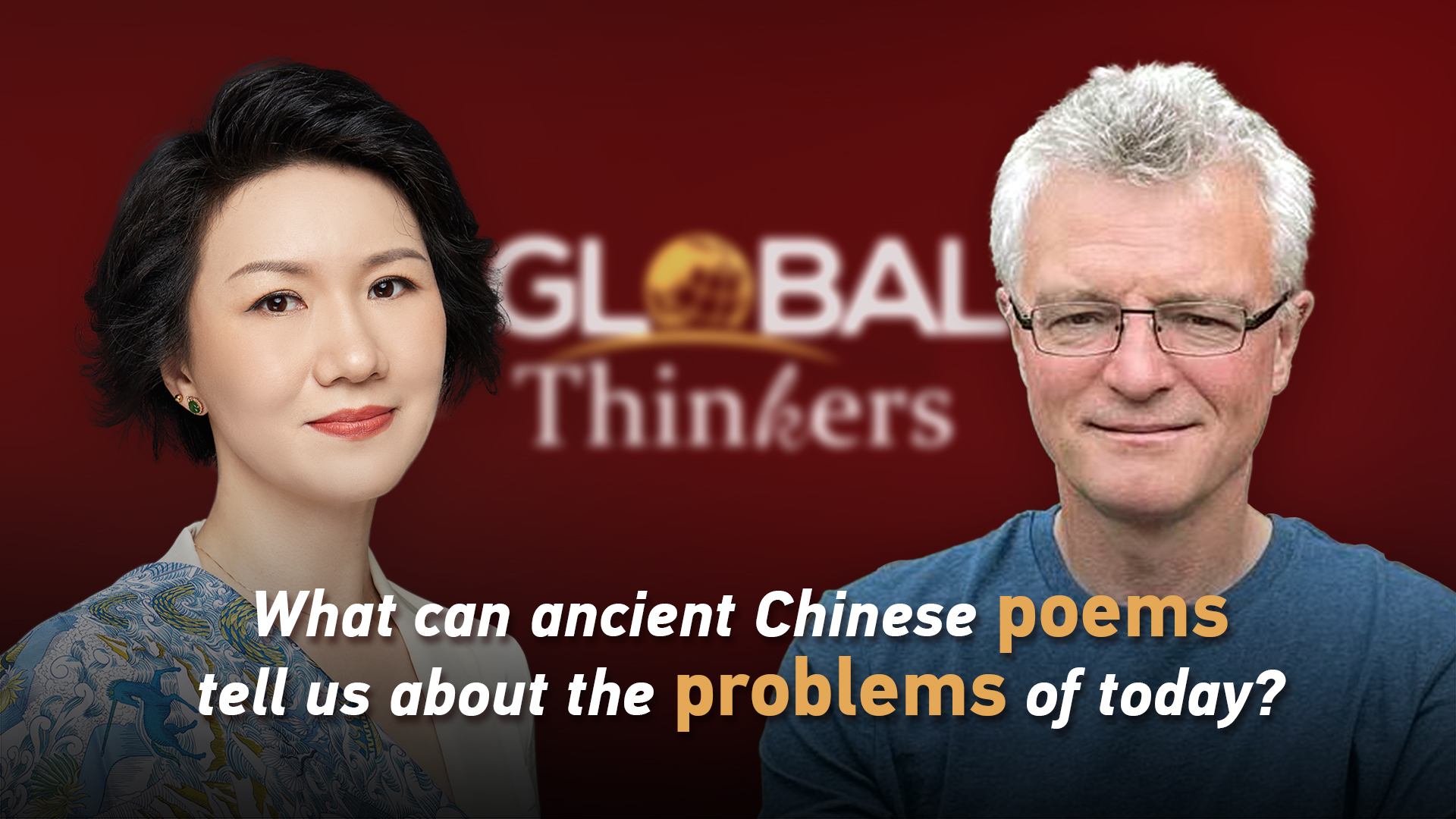06:13

Editor's note: From climate change to the refugee crisis, what can ancient Chinese poems tell us about the problems of today? Plenty! says Tim Clissold, author of Cloud Chamber. "Ancient poems are all about current problems." Just listen! Views expressed in the video are his and do not necessarily represent those of CGTN.
Tim Clissold: I've lived in China for more than 20 years. And when I came back to the UK, my children could not continue their studies about China in the education system in the UK. That to me seems like a really serious problem. Because the world is going through incredible changes where there's a huge shift. It's an inevitable shift of wealth, power, and confidence from the West to the East. And we have to learn how to live together.
So, I felt that there was a tremendous lack of understanding about China, particularly in the UK. That worried me, because there are two things about that. In a nutshell, I think that generally, especially the leadership, Chinese people understand more about us than we understand about the Chinese, right?
From the foreigners' perspective, that's a problem because it gives the Chinese competitive advantage in this process. That's actually a problem for the Chinese people as well, because if foreigners don't understand the real intention and motivations of Chinese people, that's a danger. Because they can misjudge the intention.
So that's why I'm so passionate about it. And we have a very, very urgent and pressing need to understand China. As you know, in the West, there are hawks and there are doves. Okay, there are some people think that China is a terrible threat to us, right? So in Western society, there's only one thing that unites both the doves and the hawks about China, and that is we need to understand it better.
Liu Xin: That's good to know.
Tim Clissold: So that's very good to know. So, what I was trying to do was to find poems that express things that are easy for foreigners to understand. The first thing is that they're so ancient. So the foreigner generally will say I have no idea that these poems are written 1,300 years ago. Then…
Liu Xin: But aren't you worried that it's useless to study something that's 1,300 years old? Because…
Tim Clissold: So that is the exact opposite. That was the thing I find amazing, because all the poems are about currents problems, right? Liu Zongyuan wrote a poem about the problems of the excess logging on the environment, cutting down too many trees. Totally current problem. Du Fu was a "refugee". Bai Juyi wrote about tax evasion…
Liu Xin: Internally displaced.
Tim Clissold: Yeah, exactly sure. But it's still a massive problem for Europe, it's the refugee problem. And Du Fu spent most of his life displaced.
Liu Xin: It's a bit like, the more it changes, the more it doesn't change, right? It's all that people say, "Under the sun, there is nothing new", especially when you have a 5,000… for European culture as well, you have extremely, millennia-long civilization, so you have experienced all of these.
We have decided that we will try to illustrate what we talk about. And it's called Mai Tanweng, the old man who sells charcoal. And this is a good test of whether what you said just now is true, because you say this ancient wisdom can stand the test of time. Let's try that in just a moment, but let's first try to read this. Read a few lines, read maybe one stanza of this poem.
It was written by Bai Juyi from the Tang Dynasty. He lived from 772 CE to 846 CE so that's 1,300 something like that years ago. And it's about an old man who sells charcoal.
卖炭翁,发薪烧炭南山中。
满面尘灰烟火色,两鬓苍苍十指黑。
卖炭得钱何所营?身上衣裳口中食。
可怜身上衣正单,心忧炭贱愿天寒。
The Old Man Who Sells Charcoal – cuts firewood, burns it up on Southern Hill.
Grimed with ash, face streaked with smoke from the fire, his grey hair grizzled, each finger inky black.
What living can he make from this miserable fuel?
The clothes on his back, the food in his mouth.
So wretched – his coat so thin!
Yet, anxious his fuel might lose value, he longs for icy weather.
Tim Clissold: For me, this poem and the rest of it too, conjures up an image, very strong visual image of a very poor man, old and black, with the charcoal thing. And this man's terribly poor. Yet, even though he's poor and it's close to freezing cold. And later on, he sits down in some slush by the southern gate melted snow because he's so exhausted. Even those in this pitiful state, he still wants the weather to be colder, because that means the price of his fuel will go up. So, he’s so desperate that he'll bear the pain of the ice.
And that's me is not only very visual, but it's also something that tells me that Bai Juyi understood the relationship between supply, demand and price. Yeah, centuries before it was articulated in the West. And I think that's quite interesting as well.

